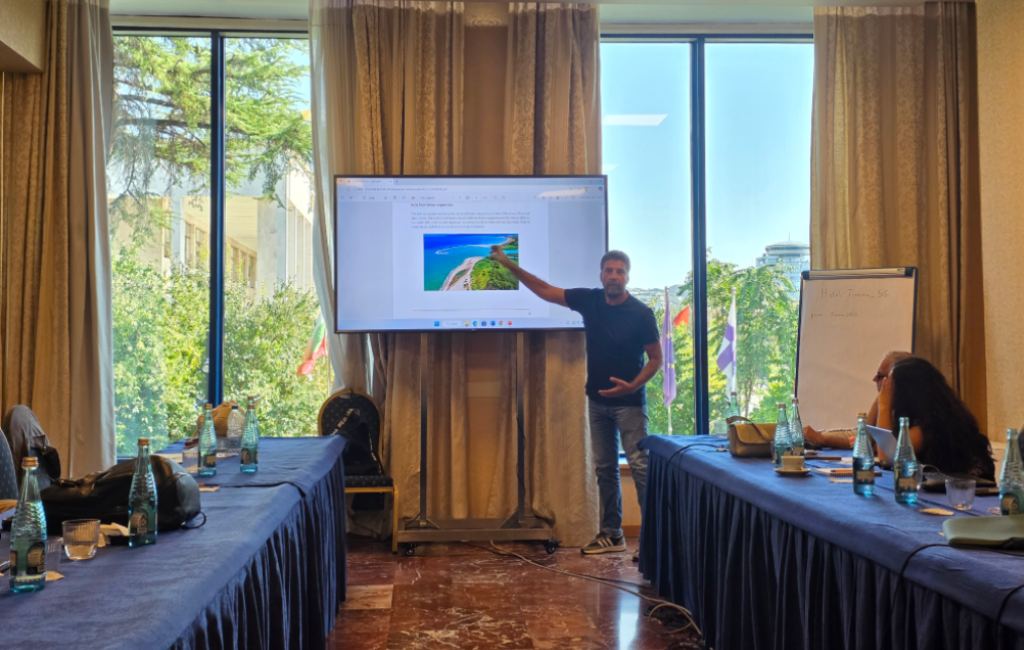Plastic pollution in the Ionian and Adriatic Seas is a significant environmental threat with serious impacts on marine ecosystems and human health. The accumulation of plastic waste, originating from rivers, coastal areas, and maritime routes, has dramatically increased in recent years, with microplastics posing an even greater risk. These microscopic particles enter the food chain, threatening marine life as well as human health. This pollution affects biodiversity, fishing, and tourism, while also having severe consequences for the health of coastal communities and the overall economy of the region.
The JOINABLE Project: A Transnational Effort for Circular Economy
The JOINABLE Project, funded under the Interreg IPA ADRION programme and co-financed by the European Union, is a pioneering initiative aimed at tackling marine plastic pollution through circular economy solutions. The consortium brings together public institutions, private sector stakeholders, academic researchers, and civil society organizations from six countries: Croatia, Italy, Greece, Albania, Montenegro, and North Macedonia.
Running from 2024 to 2027, the project promotes citizen science—encouraging public participation in data collection and environmental monitoring—and leverages digital technologies for real-time tracking and analysis of plastic waste in aquatic environments. By transforming collected marine plastic into reusable products, JOINABLE is setting an example for sustainable environmental practices across the region.
The 3rd Transnational Meeting in Albania and Upcoming Cleanup and Monitoring Actions in Greece
On August 28th and 29th, 2025, iED participated in the 3rd transnational meeting of the JOINABLE project in Albania. During the first day, consortium representatives gathered in Tirana to co-design a program for plastic waste cleanup and monitoring of coastal, riverine, and lacustrine areas in the Adriatic, which will take place from October 2025 to February 2027.
In Greece, similar actions will be organized in the coming period at the delta of the Kalamas River in the Ionian Sea (Drepanos Beach–Igoumenitsa) and in urban areas and at the delta of the Peneus River in Thessaly–Aegean (Larissa and Kouloura), with the participation of volunteers, fishermen, school students and educators, and local authorities.
Field Visit to Divjaka-Karavasta and Institutional Support from Albania
On the second day, the Mayor of Divjaka, Josif Goreea, welcomed the consortium and organized a field visit and research activity at the Divjaka-Karavasta National Park, an internationally protected area with unique flora and fauna, which the project will further protect through its activities.
It is worth mentioning that two representatives from the National Contact Point of Albania for the IPA ADRION programme attended the meeting, confirming the excellent collaboration within the consortium and its high-level results.
How to Get Involved
For more information about the project, its actions, and results, please visit the official website:
https://joinable.interreg-ipa-adrion.eu/
If you wish to participate in the cleanup and monitoring actions taking place in Greece (Igoumenitsa and Larissa), please contact Dr. Andreas Almpanis at the following email:
aalmpanis@ied.eu

